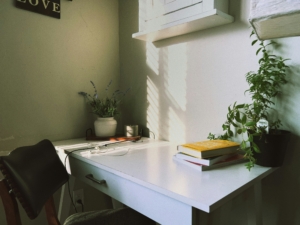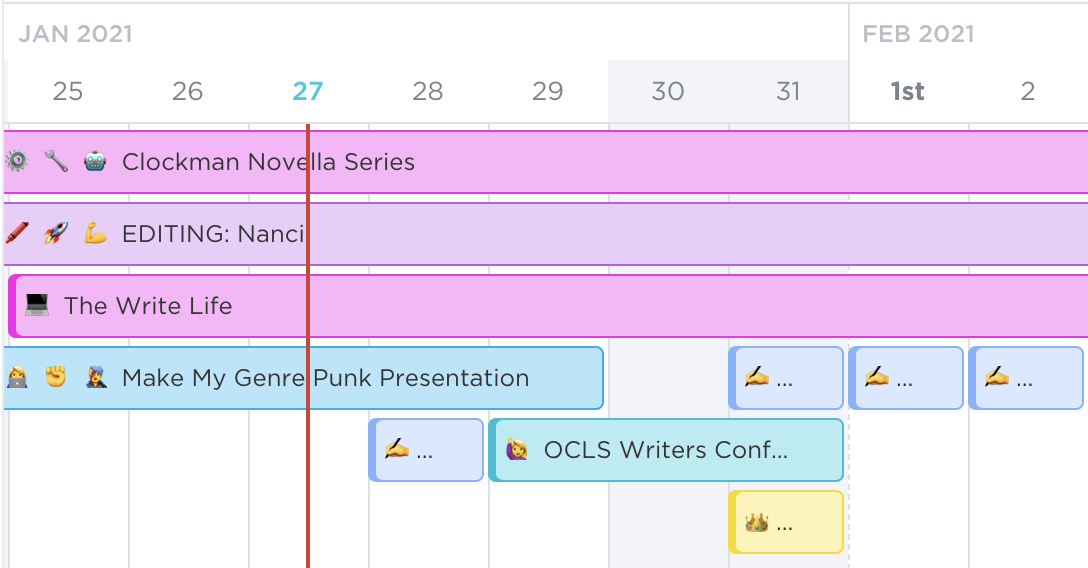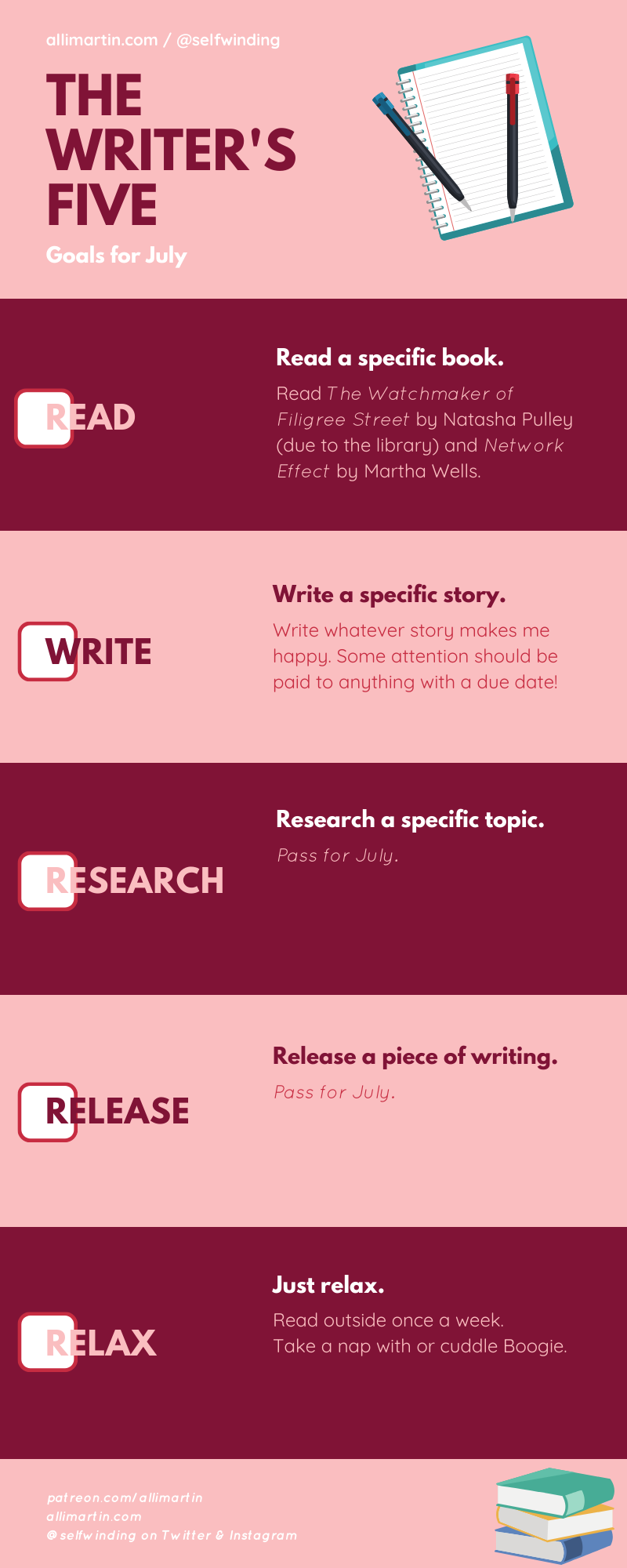One of my goals this year was to reclaim and refresh my home office and writing space. I’m privileged to have a whole room available for this, so I wanted to make sure I made the most of my space by making it functional, efficient, and inspiring. I needed to not only ask what makes a home office, but what makes a writing space?
A writing space is most easily defined by its purpose, which means a writing space needs a desk, a chair, and tools for writing. But what else can motivate a writer, encourage them to work for long periods, and support their physical bodies? When we consider our senses and the physical needs of our bodies, we start to create a list of things we require when writing.
Touch/Comfort
Consider:
- Do you have a desk and chair that properly accommodates your body and posture?
- What do you need to adjust yourself to the temperature of the room?
- What can you do to alleviate stresses on your body as you write?

Photo by Chris Vasquez on Unsplash
Ergonomics are a concern for anyone performing long repetitive tasks, like sitting and typing. If you don’t have the budget for a fancy expensive chair that beautifully molds to your spine and cushions your booty, you may need to invest in some inexpensive supportive tools like a footrest or posture pillow. To aid your wrists, you might need a wrist rest or a brace. You should also consider looking up stretches for office workers and keep them pinned or tabbed in your workspace along with a plan for when you’ll stretch during writing sessions.
Also consider the placement of your desk. I find it more distracting to have my back to a door, so even though it means I can’t look out a window, I position my chair so I’m facing the door. Where are you most comfortable sitting in your room?
Speaking of comfort, don’t forget what you can do to regulate your temperature. That may include getting a small desk fan, a blanket or hoodie, or maybe even a heating pad if your room gets really cold.
Sight
Consider:
- What images inspire you?
- What things distract you?
- How can you decorate to engage your mind and organize your space to eliminate distractions?
You can decorate your space with pictures or inspiration boards to focus your creativity, but also consider what visuals break your focus. Keeping your creative area organized and orderly may help you avoid distraction. If you can see chores that need doing, will that prevent you from writing? Do you spend time clearing your desk or looking for your notes and writing tools? How can you order your space to reduce visual distraction and focus on writing?
Organization isn’t the same thing as being neat. You may thrive with controlled chaos! But consider how it might help you to have a specific place to keep your writing notes, or a plan for how to quickly clear your line of sight to focus on the writing task at hand.
Sound
Consider:
- What sounds motivate you?
- What sounds distract you?
- How can you encourage one and prevent the other?
Playlists for projects or ambient noises selected to bring you deeper into the scene can connect you to your characters and world—and help drown out any unwanted sounds.
Even if your writing space has a door, thin walls can still contribute to sound disruptions. Noise-cancelling headphones are usually the only way to exert full control over the sounds you hear. And, if you prefer to write in total silence, they’re a better way to achieve that than kicking everyone who lives with you out of the house.
Taste
Consider:
- What snacks and beverages can keep you writing or be used as rewards and encouragement?
I make a cup of tea before writing most days. If I’m struggling, I spend more time clutching my mug and soaking in the steam, but the tactile connection helps me stay in the moment and focused on trying to write.
Snacks are a great way to reward and encourage you to sit down and write that hard scene. You can give yourself a piece of chocolate just for getting out your writing supplies, and then reward yourself after sprints or for hitting word count landmarks or anything else. Some of my favorite writing snacks are mini-chocolates, cheese, and crackers and hummus.
Smell
Consider:
- What smells can entice you into a writing mindset?
A scented candle or some incense can help signal your brain that it’s time to write. If that scent is somehow associated with your story world, the immersive experience can make it even easier to fall into your project and stay grounded with your work. Think about the smells from your story and see if you can recreate any of them in your writing space to use as inspiration and signal that it’s time to write.
I used all my senses to help make decisions about my writing space and what I need. Having the opportunity to redefine this space has been really wonderful. I hope you can use some of my thoughts to help define your own writing space, even if it’s a temporary table at a coffee shop.
For full access to The Write Life and more about what I’ve done to assist with my creative life, sign up on Patreon for $1 or more per month. You’ll also receive a personalized thank you in a future edition of The Write Life.


